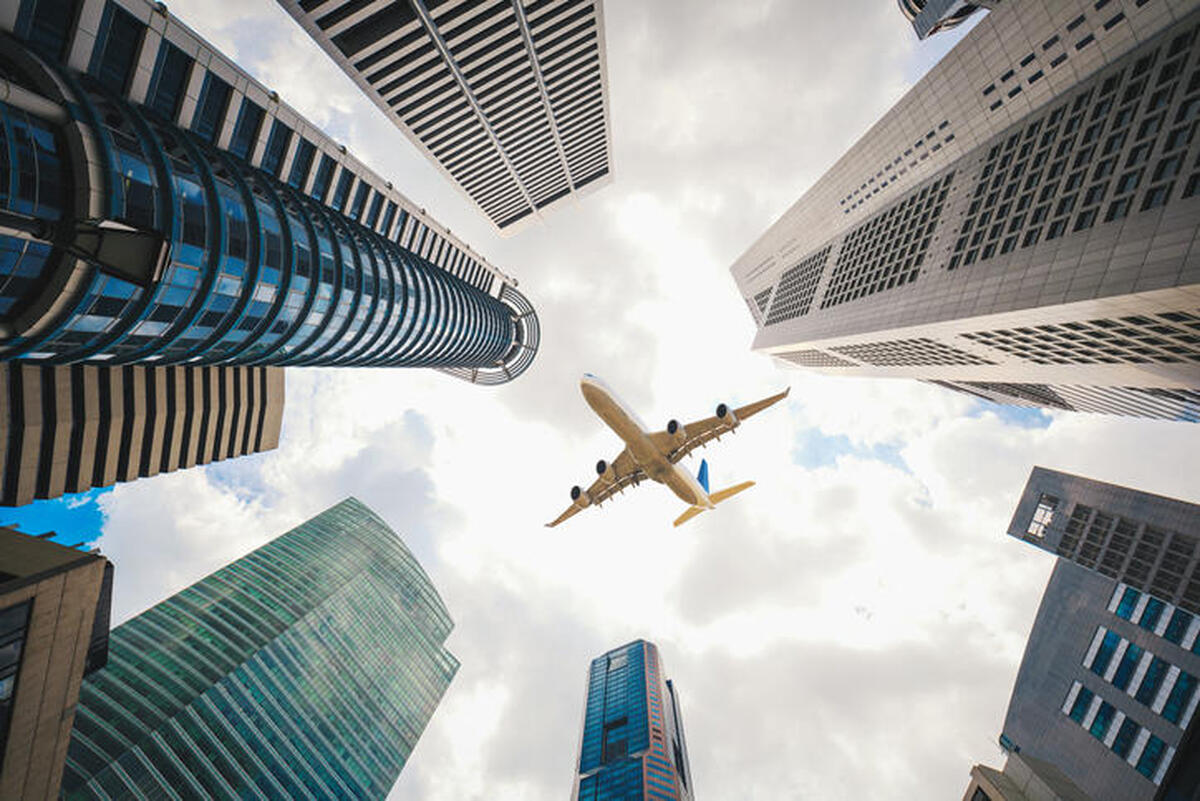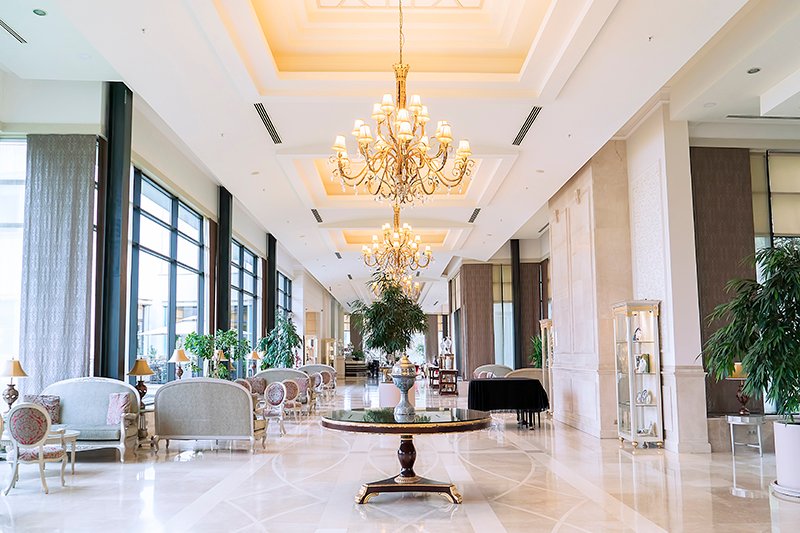Overview of the hospitality industry after Covid-19
Friday, September 24, 2021 Industry overview by AniThere is something everyone can agree on and that is the enormous and unanticipated impact that COVID-19 health crises has had upon all of our lives. The hospitality, travel, and tourism sectors were significantly damaged, but we still have to admit the drastic effect it had on our society. Consumer behavior and ultimately spending has been in constant change and most likely will keep on changing and thus businesses have to adapt their strategies to rapidly fluctuating circumstances.
In this industry overview, we take a deep analysis of how hospitality firms have to re-orient their operations to meet the needs and wants of the market. We also provide some ideas that we believe are essential for investors and hotel developers to consider when preparing new hotel development projects.
Hereby, we take a look at whether these changes are lasting or only temporary. No matter what the final outcome is the businesses that think about alternative scenarios and reconsider their plans will be more equipped for what is to come.
The coronavirus outbreak will be in our collective memories for years to come because of its devastating effect at different levels in the world economy. With continued government aid and backing by financial institutions, the economy will continue to grow and overcome the current crisis. Resolving economic crises isn’t an entirely new concept. If there’s a desire there’s a means.

What are the building blocks of the future of the hospitality industry?
The demise of boundaries along with lockdown measures as well as travel limitations have caused the hospitality industry to endure its most devastating results in recent years. Loss of money and closures of hotels are not uncommon which has created a level of anxiety that the majority of people have not been through.
We must be able to think ahead and be prepared for the changing environment that is taking shape. It’s neither easy nor quick however, the industry has demonstrated its ability to recover from unexpected situations and has an enduring backbone. The issue right now is how to adjust to the changing trends which are influencing our future in hospitality.
We will be explaining how the pandemic is changing certain consumer attitudes and behaviors and how they could impact the hospitality industry in the coming years. Of course, the behavior of consumers is always in change, but it is important to take a moment and think about whether we’re living in ongoing or only temporary changes. Also, we must resist the urge to think that things will get back the way they were “normal”.
Health and Safety
The public will pay more focus on the various health-related security measures, hygiene, and health-preserving methods that businesses are implementing. Google searches that are related to health topics in the last year have been increasing significantly with the highest peak occurring in January 2020 and March 2021. To win the trust of consumers companies must be honest and reliable.
Wellness
The United Nations has highlighted the importance of mental health and well-being especially when it comes to the severe situations of loneliness and isolation caused by lockdowns. People should be focusing their attention on their health and well-being by engaging in house training and sports, fresh organic and natural food, nutritional and self-care, as well as regular medical check-ups, etc.
Consumption & Spending
Many consumers will prioritize purchases of basic items and will concentrate on leisure products because of a decrease in their purchasing power strongly related to the increase in unemployment. Customers will prefer higher quality items or brands that are well-known. Additionally, there will be more planning ahead and less impulse buying.
Digitalization
Meetings and webinars online and the use of teleworking platforms are becoming a fundamental part of our daily routines. Services for home delivery, mobile payment medical appointments via videoconference, online purchases, or even the creation of the “COVID Radar Application” all point to the digital age in a hurry.
Remote Working
The outbreak of sanitary conditions has forced many companies to adopt telework as part of their procedures. Most of the time remote working has proved effective and efficient for the employee as well as the employer. Positively employees have a belief that some of the benefits of teleworking are lower stress levels; flexibility in work and life balance, flexibility in time schedules, and the ability to save time on commutes. Employers have also seen a rise in productivity, less expensive costs with physical office space, less employee absenteeism, and more efficient use of technology. Teleworking has been proven to be effective, it appears like many businesses will keep this idea as a definitive or hybrid option for employees.
Tourism & Travel
According to research conducted by Booking.com travel restrictions in this time of crisis have led to different ways of thinking about tourism and travel for customers. Some of the new trends in the field of travel are “greener” locations, travel closer to home, which leads to a rise in the usage of private transport and remote working, and the possibility of rural tourism.
Sustainability
Prior to the outbreak, it was already a topic that was being addressed by companies, individuals as well as international organizations such as the United Nations. Consumer behavior is more directed towards reducing and conscious consumption and the use of less waste. Sustainable products, ethical brands green policies, environmentally-friendly products, and environmental issues will be more popular in the near future.
Consequences for consumer spending
Modifications in the consumer behavior can eventually result in changes in the way consumers spend their money. The average consumer will spend more time comparing and will make informed decisions and consider the impact that the purchase has on the entire world.
People have been staying longer at home, which has led to an increase in the usage of the internet, and an increase in the number of transactions via online shopping. Accessibility, exclusive promotions delivery services, affordable prices, the capability to compare, and accessibility are all factors that draw the attention of consumers. This type of spending and consumption will become more prevalent in the near future.
In the context of travel and tourism, the spending can be affected in various ways and will depend on the speed with how vaccinations are administered in the various nations.
The adaptability of the hotel industry

Hotel Operations
With this unprecedented event, it is imperative that the industry of hospitality be able to adapt. It is now the time for hotel operators and owners to show the resilience of the sector as well as its ability to adapt to the changing requirements of the marketplace and to incorporate the new regulations and rules. This isn’t only a matter of being politically correct. It is the perfect time to show that the hotel industry has the ability to think outside of the box.
Planning
Planning is a crucial aspect of any company, but at the moment, thoroughly efficient and constant plan-making will become more important than ever before. Operational departments will develop new SOPs, action programs are essential to all divisions, and business models will be revised and contingency plans have to be studied carefully.
Hotel Design
The concept of hotel rooms needs to be rethought. Cleanliness, sanitizing, reduction of non-essential elements (cushions, decorative elements, newspapers/magazines), and the redesign of common areas to respect social distancing and capacities are all key aspects to consider when evaluating how rooms and public areas need to be adapted.
Health & Safety
Safety and health precautions are, no doubt, the areas in which hotels need to concentrate on their efforts. In the Study on Monitoring Sentiment for European Travel by the European Travel Commission, “2/3 Europeans are more comfortable during their travel experience when strict safety and health protocols have been put set in place”. To address this we’ve observed that certain companies have launched special promotions to ensure their guests’ safety during their stay. In reality, some hotels even offer 24-hour medical services as well as extended insurance policies and free PCR tests.
Sales & Marketing Strategies
Its Study on Monitoring Sentiment for European Travel by the European Travel Commission pointed out that more than 45 percent of the people polled plan to plan their next trip online using review sites for travel (18 percent) or destination websites or social media (12.7 percent) as well as hotels’ websites (11.8 percent). This is confirmed with EMEA consumer research carried out by SAS, a world-class leader in marketing analytics. The research discovered 77% of new digital customers intend to continue using digital services following closing. “The industries and businesses who are able to keep those customers over the long run will reap the greatest dividends”.
Another approach to increase visibility, and return on investment is to reinvent the interiors of hotels by implementing innovative strategies. Hotels have been creative in their approach to attracting new customers and have integrated innovative business models into their strategies. A few of these strategies include day rental rooms as well as the conversion of spaces into co-working spaces, providing the space for film and television productions as well as renting spaces to schools for educational reasons.
People Management
While it is essential to pay attention to the comfort of consumers and security, you should not ignore the most important human element of the industry the employees. The majority of the hotel staff are forced to put their jobs in limbo and it is a challenge to get them back into work physically and mentally. With a lack of social interaction and isolation working with customers, face-to-face and teamwork routines can be a challenge.
Hotel Planning & Development
A lot of hotel developers are wondering what they should do to move forward in their ventures and deal with the risks that can affect the development of any new venture. The issue of liquidity and solvency, as well as forecasts of future cash flow and uncertainty regarding the market of the future, are among the most important factors that affect all new hospitality investments. But, those who choose to take on new ventures or are in the planning stage are not able to ignore the negative impact this epidemic has caused socially and the impact it has had on the development of future hotels.